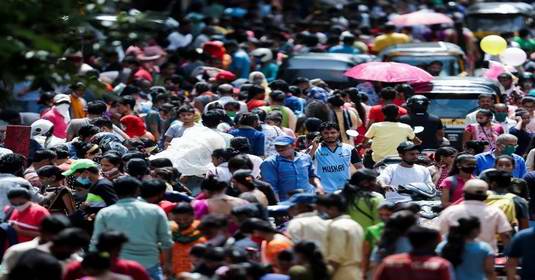Only leaders with more than 2 children will be able to contest elections, this state is preparing to make a law, know
Amravati : Andhra Pradesh Chief Minister N Chandrababu Naidu has given an important statement, in which he has said that only those leaders who have more than two children will be able to participate in the Panchayat and Municipal elections. Recently, the Andhra Pradesh Assembly repealed a three-decade-old law that barred people with more than two children from contesting local body elections.
Let us tell you that this is nothing new for Chandrababu Naidu. He has been advocating this for almost a decade. He believes that Telugu families should produce more children so that the problem of increasing number of elderly people can be solved. Last year he also stressed the need to encourage families to have more children.
After this statement of Chandrababu Naidu, Tamil Nadu Chief Minister MK Stalin also shared this idea and appealed to the people to give birth to more children.
Chandrababu Naidu was with his family and relatives on the occasion of Makar Sankranti in his home town Narvaripalle on Tuesday. He said, “Earlier we had a law which allowed only people with two children to participate in local body and municipal elections. Now I say that those who have less children will not be able to participate in the elections. In future you will be able to become a Sarpanch, Municipal Councilor or Mayor only when you have more than two children. “I’m going to include it in the proposed rules.”
Let us tell you that the two-child policy is generally followed in South Indian states. This is clear from the total fertility rate of these states, which is 1.73. Whereas the national average is 2.1. At the same time, the fertility rate of big states like Uttar Pradesh, Madhya Pradesh, Bihar, Rajasthan and Jharkhand is 2.4, which is higher than the national average.
Chandrababu Naidu also said he was working on a scheme to incentivize families with more children by allowing them to participate in panchayat and municipal elections besides supplying more subsidized rice. At present each family is given 25 kg rice, of which each member gets 5 kg rice.
Giving examples, he said that Japan, Korea and many European countries have encouraged family planning policy because the total fertility rate there is very low. These countries are today struggling with the problem of increasing number of elderly people and are inviting Indians to settle in their countries. “This is also a warning for India, because we have encouraged family planning and advised limiting families to a limited number of children,” he said. In a few years, India will also face the problem of increasing number of elderly and at that time we will have very little options.”


Comments are closed.